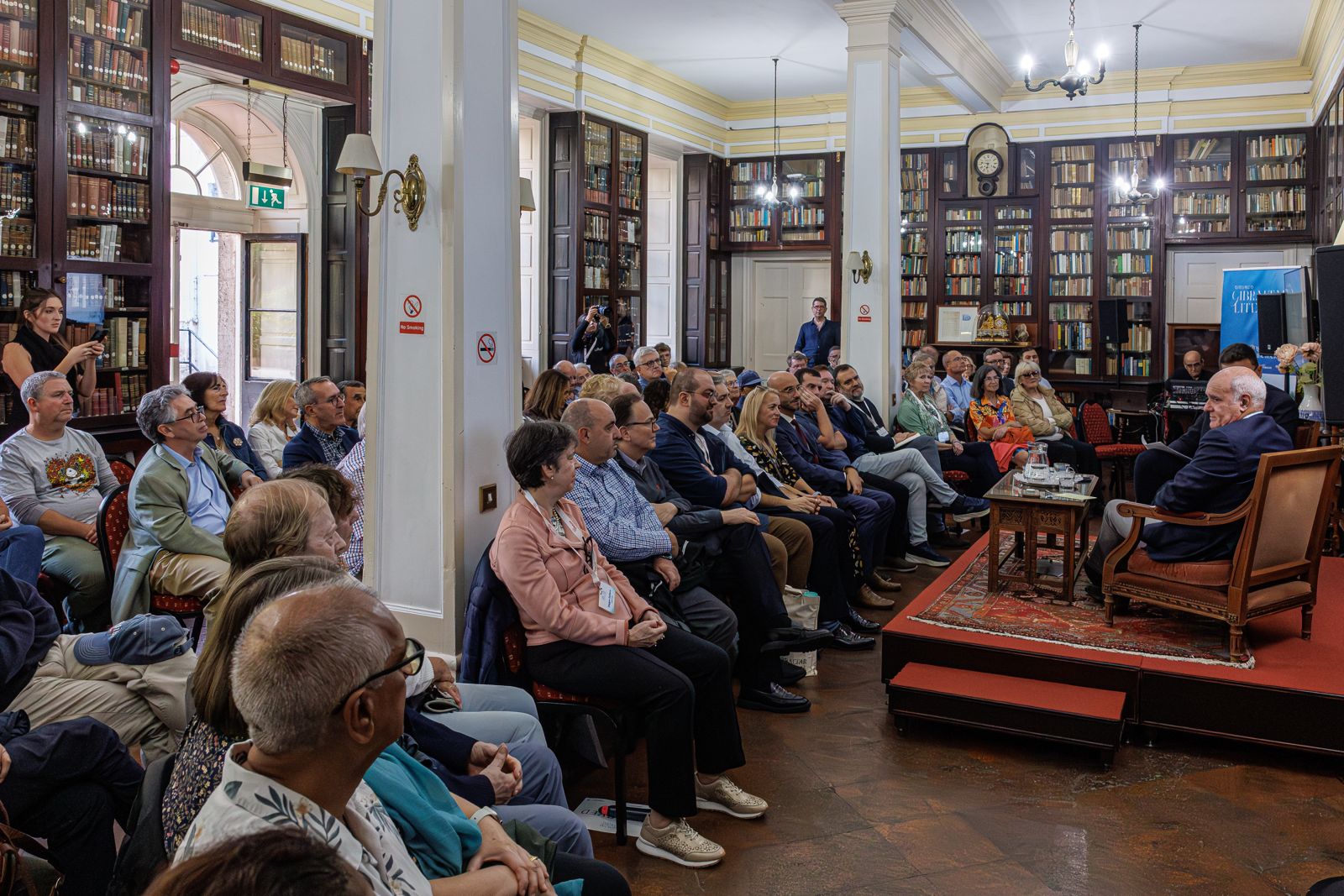Brexit was ‘the mother of all divorces’ in an age of break-up
Photos by Johnny Bugeja
João Vale de Almeida, the former EU Ambassador to the United States, the United Nations and the United Kingdom, described Brexit as “the mother of all divorces” during a wide-ranging talk at the Gibraltar Literary Festival, drawing on insights from his diplomatic career and his new book, The Divorce of Nations.
Speaking to a packed room in the Garrison Library, the veteran Portuguese diplomat said Brexit was “a cautionary tale” that exemplified the two key “divorces” shaping the 21st century, namely the breakdown of trust between nations alongside growing divisions within them.
He warned that both were fuelling instability and weakening international cooperation and multilateralism.
“Populism at home limits the opportunities for foreign policy options for leaders who are under pressure from the populist dimension,” he said.
“Populism has an impact on the way you look at trade, when you look at the openness of our economies or foreign investment or otherwise.”
“I call the 21st century a rebellion without a cause, in the sense that this century is actually deconstructing work the previous century has produced…certainly in the last 50 years or so, without providing a viable, feasible alternative model.”
Reflecting on the 2016 Brexit referendum, Mr Vale de Almeida argued that the Leave campaign succeeded by offering emotion and simplicity, whereas the Remain campaign failed to connect.
“The Leavers had a simple plan to leave, but they were able to add emotion to it,” he said.
“The Remainers had a simple plan to remain, but they were not able to add emotion to it.”
He acknowledged that EU leaders underestimated the strength of anti-EU sentiment in parts of the UK because viewed from Brussels, the UK already “had the best of both worlds” prior to 2016.
The UK was outside the euro and had exceptions on agriculture, for example, “and still voted to leave.”
“What was wrong? Their hearts were not in it,” he said.

As the first EU ambassador to the UK after Brexit, a post he held from February 2020 to November 2022, Mr Vale de Almeida described his time in London as challenging, citing a “belligerent” atmosphere and strained relations that are only now being rebuilt.
“There was a total loss of trust across the Channel,” he said.
“We wanted to avoid contagion. We could not reward departure.”
He said the UK had weakened its negotiating position by failing to prepare for victory in the referendum.
The Leave campaign did not think it was going to win, “so they didn’t prepare”.
“Which means that when they won, they had no plan,” Mr Vale de Almeida said.
That gave the EU “an immense comparative advantage”.
Turning to the wider global landscape, Mr Vale de Almeida warned of a growing shift away from multilateralism, democratic norms and the rule of law.
He said multilateral institutions such as the United Nations were at risk of losing credibility because they were not working as well as they could and should at a time when they were most needed.
And he said powerful leaders such as US President Donald Trump were setting an example that was having a “detrimental impact” that should not be underestimated.
“We have less democracy in the world than 10 years ago,” he said, pointing to “an authoritarian trend that is imposing itself”.
He struck a note of caution and said the international community must reflect carefully and consider what the alternative would be.
Mr Vale de Almeida put a spotlight too on what he termed “political decency” that had declined "like crazy” in recent years.
“Are we capable of going back on this and restore decency in politics?” he asked.
“I'm not sure.”
Despite these concerns, Mr Vale de Almeida remained cautiously hopeful.
“I still believe in humankind, I still believe in our capacity to overcome this, but it will take some time and effort,” he said.
Mr Vale de Almeida was speaking in conversation with Aaron Santos, a Gibraltar Government press officer.









